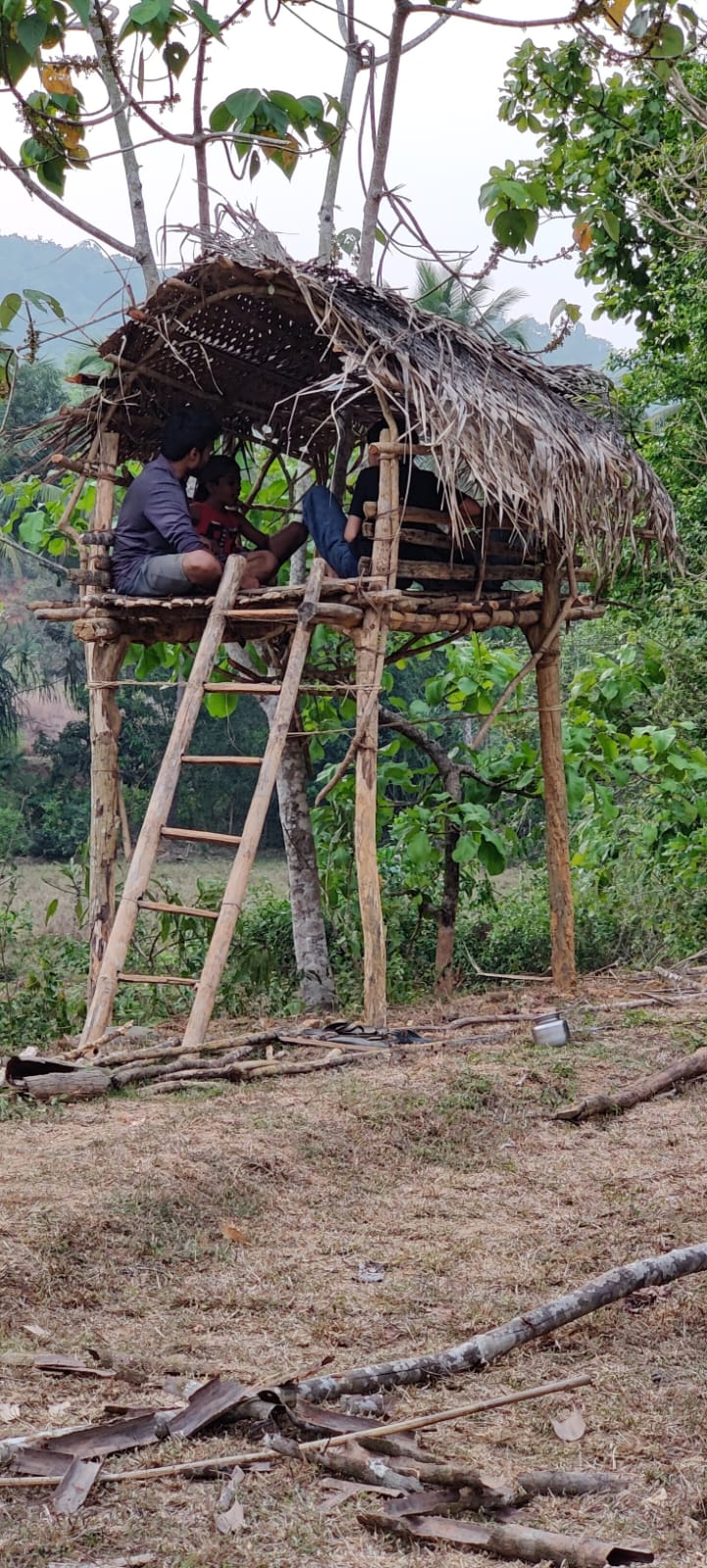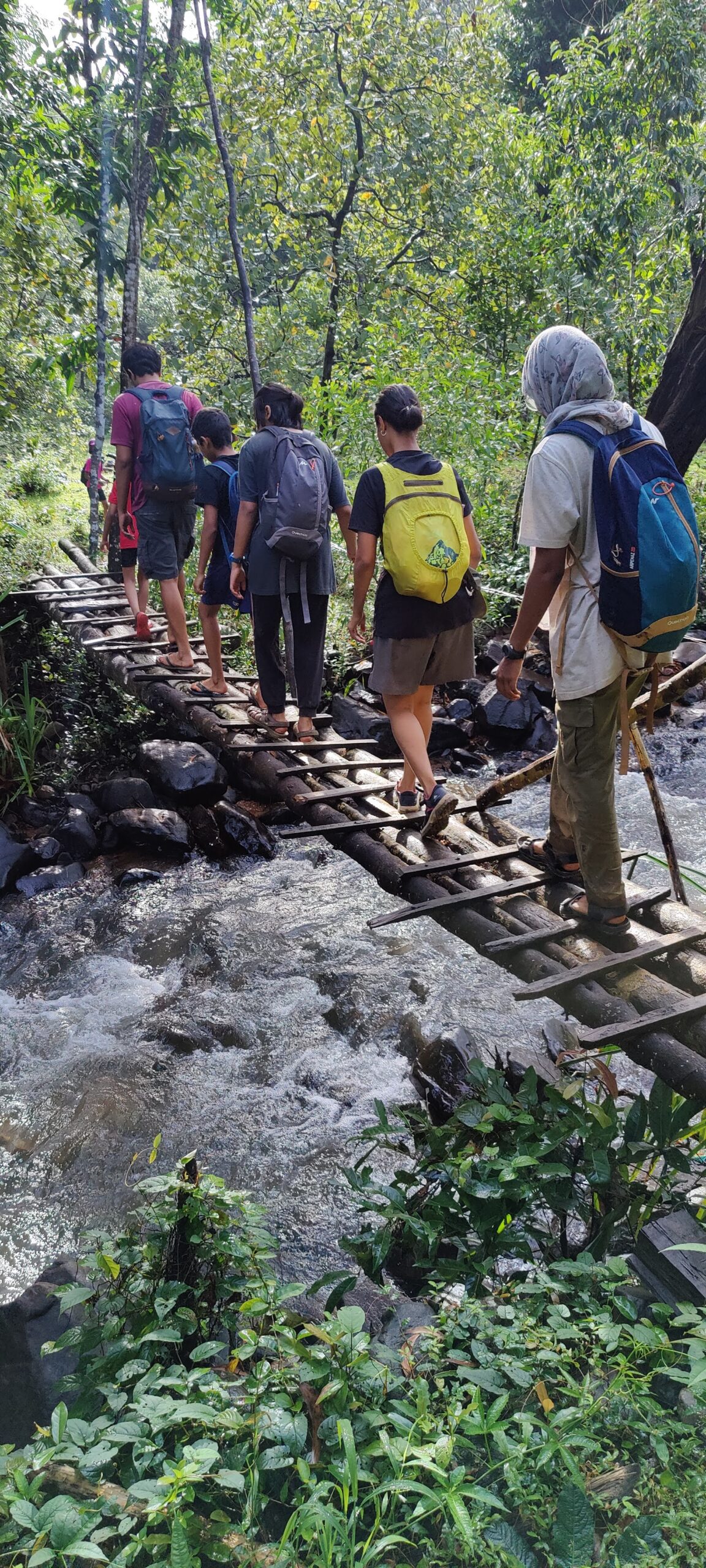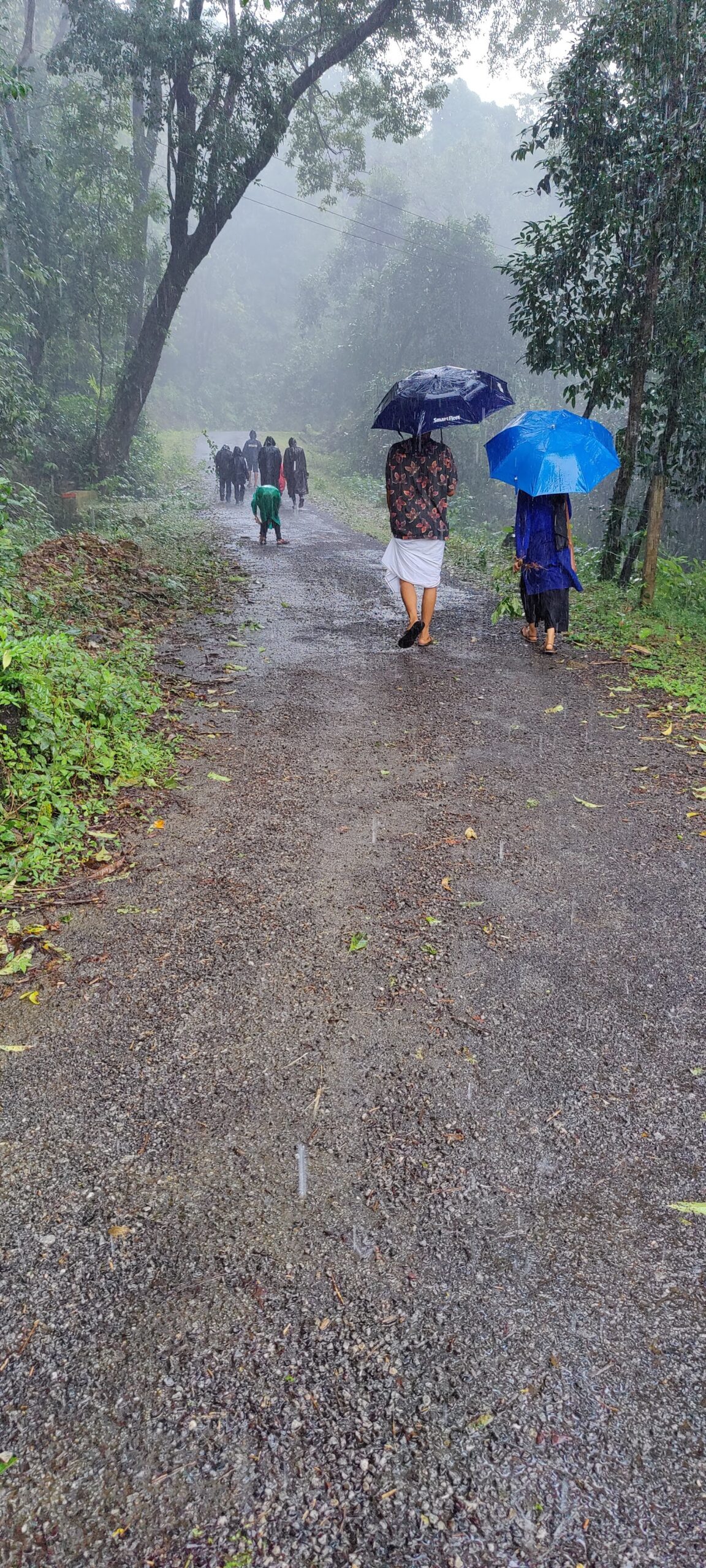RUTU - LIVE & LEARN PROGRAM
Seasons are rhythms which are the fundamental aspects of life. They are more than just changes in the weather, there are many important and subtle differences with each season. The changes in the types of foods, the celebrations, the activities, the ecology and life around us are significant outcomes. The rhythm of each season, enables us to understand the passage of time, environmental change and adaptation. When we disengage with the seasons in our air-conditioned rooms, consuming imported foods and synthetic garments we totally disconnect with nature and what the seasons have to offer us. Living in harmony with the seasons brings health and is fundamental for learning.
It is the most challenging time today to be a student, an active learner and more so a young adult. In these times where entertainment, social media, television, gaming and a flood of information blur the young minds and come in the way of learning at leisure, youngsters are struggling with basic physical, emotional and mental development. They struggle to find joy in small things and feel lost and confused to find their calling.
It is our endeavour to bring back to the young minds these aspects, and we strive to reinstall health, well being and an open mind.
It is the most challenging time today to be a student, an active learner and more so a young adult. In these times where entertainment, social media, television, gaming and a flood of information blur the young minds and come in the way of learning at leisure, youngsters are struggling with basic physical, emotional and mental development. They struggle to find joy in small things and feel lost and confused to find their calling.
It is our endeavour to bring back to the young minds these aspects, and we strive to reinstall health, well being and an open mind.
Outcome
Get exposure, experience and learn:
- Folklore & Folk Culture
- Community & Sustainable Lifestyle
- Farming & Building
- Low-Waste & Conscious Living
- Impacting Rural Livelihood
- Research & Documentation Skills
- Alternate Education Methods
- Self Discovery, Self Study & Self Exploration
- Building a Portfolio
- Eco-Tourism
Purpose
Our main purpose is to foster holistic living and learning environments via community participation that will include locals and people from in and around Uttar Kannada region. We also wish to facilitate community based interaction where the importance of land (soil), flora & fauna is deeply ingrained in their experiences.
We encourage mixed age groups and a cross cultural environment that fosters learning. Our primary objective is to introduce to students and individuals creative ways to learn. The program helps them experience traditional wisdom, non-conforming learning and nurtures self-growth. All our activities and programs revolve around the seasons of the year. Each season offers diverse opportunities and these elements contribute to life at RUTU.
Location
We are located in the Coastal Karnataka State of South Western India, in the district of Ankola which is on the western sea coast, nestled in a tiny village called Angadibail amidst the Western Ghat forest, a warm traditional community home named RUTU.
- Nearby Towns: Gokarna (30 km), Ankola (30 km), Kumta (50 km)
- Closest Airport: Goa/Hubli
- Closest Rail: Gokarna/Ankola/Hubli (from Hubli to Ankola Town 120 km by bus)
Criteria
If you are looking at an alternate way of life, want to live with the needs of the seasons of this land and if you are falling in the age group of 12 and above , this program is for you .
Duration
Since we work in unison with the seasons, you may choose a single season or choose to enroll for all 3 seasons i.e. Summer, Monsoon & Winter.
Summer Rutu – 1 month ( April – May)
Monsoon Rutu – 2 months (Aug – Sep)
Winter Rutu – 3 months ( Dec – Feb)
After every season there will be a gap of 1.5 or 2 months. Duration will vary depending on other activities.
Seasonal Offerings
Forest has its own curriculum to follow us . All activities are season specific and in accordance with the available resources. They may be subject to change.

Summer Rutu
(1 month)
- Sugarcane Planting
- Groundnut /watermelon Harvest
- Learning Siddi dance
- Basket Weaving
- Bandi Habba -Festival of Masks
- Kokum Harvest Festival
- Interacting with Halakki women
- Seed Collection & summer fruits
- Product development – Kokum Preserves, Bio Enzyme, Aam Paapad, Fruit Jams, Pickles.
- Field visits/treks
- Shramadhan-collecting firewood, building bridges etc

Monsoon Rutu
(2 month)
- Paddy Transplanting & Tree Planting
- Studying Reptiles & Snakes
- Weaving Skills & Techniques
- Oral Folk Heritage & Gods
- Celebrate Ganesh Chaturthi & Nagara Panchami
- Mungaru (Rice) Festival
- Visit Waterfalls & Stream Walks
- Seasonal Ecology (Fauna & Flora)
- Study Wild Food & Sacred Groves
- Hand Quilting
- Shramadhan

Winter Rutu
(3 month)
- Paddy & Turmeric Harvesting
- Growing Vegetables
- Local Architecture & Design
- Tool Making
- Angasanskara
- Regional Art & Craft
- Introduction to Yakshagana
- Celebrate Deepavali / Bali Padyami
- Aalemane (Sugarcane) Festival
- Field visits:Visit Quilting Village, Areca Nut Leaf Products
- Factory, folklore museum
- Study Tours (Forest/River/Sea Route)
- Study Edible & Medicinal Plants
- Shramadhan
For further queries write to us at [email protected]
